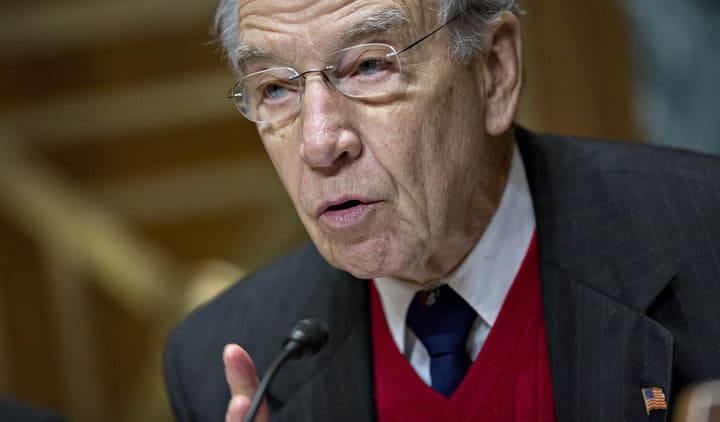Trade correspondent L.C. reports:

The White House has drafted a “US Reciprocal Trade Act” that would give the president authority to impose tariffs unilaterally on specific products and countries. The president wants to promote it in his January 29th State of the Union address and would like it to be introduced in Congress before then. However, the anticipated bill is already arousing a strong backlash from both Democrats and Republicans, so it does not appear likely to be enacted. But even its introduction would be provocative as it would violate basic principles of the World Trade Organization (WTO) as well as other US trade agreements.
The president’s trade bill comes amidst already widespread criticism of Congress for its failure to resolve the migration crisis at the southern US border — the proximate cause of the government shutdown. If Congress fails to act, this could force the president to declare a national emergency, further expanding executive powers at the expense of a feckless legislative branch. Opposing the president’s trade bill would be an easier win for a divided Congress.
According to Bloomberg News coverage on January 10th, the administration’s draft bill would give the president authority to raise tariffs on a line-by-line basis, targeting individual products from individual trading partners if “the president determines” that either tariff or non-tariff barriers on the product are higher than the US imposes on that product. The president would notify Congress and seek negotiations with other countries to get them to agree to lower their barriers, but Congress would have no power to veto any tariff the president imposed.
There is nothing in current global trade rules that tries to equalize tariff levels in this way; the rules are instead based on the most-favored nation principle that the same tariff be applied to all suppliers of a given imported product. Thus the thrust of the bill is to overturn the existing system. Besides the chaos that would ensue, the US would find in many instances that tariffs would be raised on US exports, and the prices of inputs that US manufacturers import would soar. (Over 50% of US imports are industrial materials).
If the president’s bill appears to be moving forward in Congress, it will provoke a stock market crisis. The bill will mean that the president or his successors will have even more discretion than now to reward favored industries and crony companies and punish those he or she doesn’t like. It will also incense already frustrated US allies and disrupt cooperation with them against Chinese abuses — with strategic as well as economic implications.
So it is not surprising that the reported draft legislation has not been greeted warmly on Capitol Hill. Importantly, Senate Finance Committee Chairman Chuck Grassley (R-IA) rejects the idea. “Oh, we aren’t going to give him any greater authority, we’ve already delegated too much,” he told reporters when asked about the draft bill. Moreover, Grassley repeated this week that he wants to review the trade authority that Congress has already delegated to the President, in particular Section 232 which the President is considering using against automotive imports. “I do not believe that we should alienate our allies with tariffs disguised as national security protections. And certainly not when it comes to [automotive] trade,” he said. “For this reason, I intend to review the president’s use of power under Section 232.”
China talks dilemma: how to verify
The first high-level face-to-face session of the US-China 90-day talks took place in Beijing. Originally scheduled for January 7th-8th, the talks were extended an extra day. While neither side is providing details, both report progress. The talks face a March 1st deadline, with US tariffs set to be hiked on March 2nd if the talks fail or are not extended.
Meanwhile, US officials and analysts are focusing on the question of enforcement for any deal that results, given Beijing’s poor record on sticking to its commitments. Chinese inadequacy on compliance has been especially troubling to the US and others in terms of how it has reneged on WTO obligations made when it acceded to the organization. Whereas a Chinese promise to increase imports of US soybeans or liquid natural gas can easily be verified, compliance with promises not to engage in theft of intellectual property, compel technology transfers, eliminate non-tariff barriers, and reduce covert state subsidies will remain difficult to prove.
Talks with the EU also at an impasse
US negotiations with the European Union are at an impasse over agriculture, which is the one sector that Brussels is insisting not be part of the trade negotiations underway. This was starkly evident following EU Trade Minister Cecilia Malmström’s meeting with Senate Finance Committee chairman Grassley. Before they met, Grassley said, “I don’t know how anybody in Europe that wants a free trade agreement with us expects it to get through the US Senate if you don’t want to negotiate agriculture….. [T]o get something through the US Senate that you call a free trade agreement, it takes a lot of agricultural organizations and a lot of agricultural interests” to push for it.
US presidential unhappiness with the EU has also been brusquely expressed by the administration’s downgrading the status of its ambassador to the EU, David O’Sullivan. This move was foreshadowed a month ago in a Brussels speech by US Secretary of State Mike Pompeo in which he denounced an array of multilateral organizations that included the EU. The implicit threat of these moves is that the Trump administration might bypass the EU and negotiate directly with Germany and other EU nations that have major export dependencies on the US. But the risk in such a move would be its potential to push the EU closer to China rather than working with the US to curb China’s trade abuses. It could also severely damage NATO, much to the delight of Russia’s President Putin.

Leave a Reply